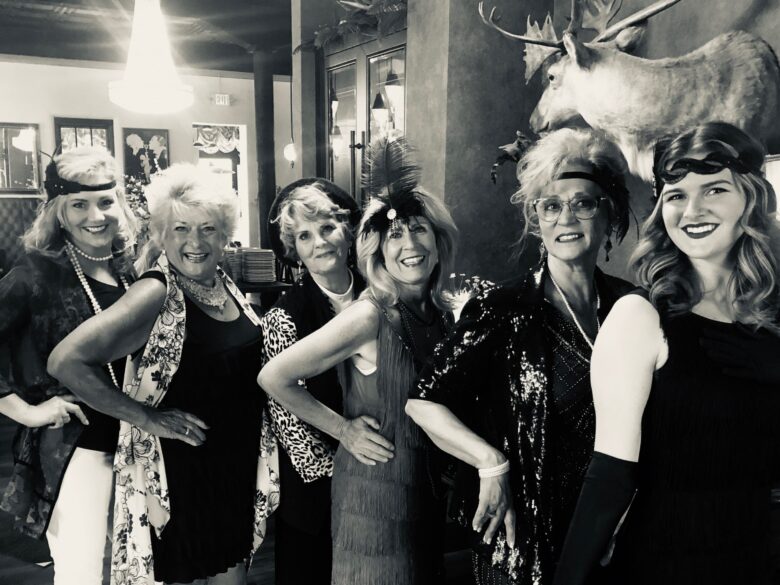“Throughout history, women have been the backup players, supporting the men winemakers,” says Heidi Moore. “For the most part, women have only been represented in the tasting rooms and on the business side of the industry. Not often were they involved in the wine-making process, let alone head wine-makers.”
But according to Moore, host of Wine Crush Podcast — which features wine producers of all sizes in the Pacific Northwest (PNW) — that pattern is beginning to change. “I’ve been involved in the industry for the last eight years, and I’ve noticed more and more wineries recruiting women for leadership roles,” she says.
Moore herself may be viewed as part of this trend — as host of a wine-centric podcast, she has also become a female authority in the wine industry. Strangely enough, however, her journey into the world of wine began by accident.

Source: catholicvineyard.com
Contents
An accidental beginning
“Nine years ago, I didn’t have the smallest notion of starting a wine podcast,” Moore says. “The turning point came when a business opportunity came up within our company to work with a new insurance product specifically for the wine and hard cider industry.” In her “day job,” Moore works as one of the top insurance agents for Country Financial, offering a wide range of home, auto, and life insurance policies, as well as those for small businesses, farms, and estates.
Despite initially finding the world of wine intimidating, Moore started to work closely with winemakers, brewers, cider makers, and the farmers that supply them. She became fascinated as she learned more about these beverage industries, connected with its interesting people, and developed an appreciation for their products.
Without even meaning to, she developed a specialty insuring every part of the wine industry, from tasting rooms, restaurants, and caterers, to vineyards, farms, and wineries. However, as her understanding of this industry grew, she also noticed a lack of representation for women.
A lack of representation for women
Statistics show that men have long dominated the wine industry. But that doesn’t mean women have never been involved.
“Women throughout history have been the invisible force behind many of the great ideas that have come to the world,” Moore says. “I think back to the old saying, ‘Behind every successful man, there stands a woman.’ Traditionally, women have been looked at as caretakers, mothers, and the keepers of the home; often their ideas were not heard on a large scale.”
Despite the lack of recognition that women have traditionally received in the wine industry, Moore has unearthed a rich oral history that suggests women have always played a pivotal role in its production. “Over and over again, the people I interview on my podcast tell me that a passion for wine passed down through their family’s maternal line,” she says. “Many people were first exposed to wine through their grandmothers. These women were the spark that ignited their initial interest.”
Yet, women have historically faced challenges in the wine industry. “Working in the wine industry requires a lot of physicality,” she says. “That could have been partly responsible for keeping women out of the cellars. But over time, with technology, ingenuity, and education, more options and ways of doing things have opened up. Those old barriers just aren’t as prohibitive anymore.”

Source: juicefly.com
Women enter the world of wine
The traditional underrepresentation of women in the wine industry inspired Moore to focus her podcast on women’s contributions in particular. “I once interviewed a Portland-based female winemaker who didn’t even mean to create an all-woman facility, but just stumbled into it,” she remembers. “Without trying, she created a remarkable tasting room and production space with six different women-owned wineries. Ten years ago, that wouldn’t have been possible! It’s beautiful to see such collaboration between women.”
More recently, she has noticed positive changes. “I’ve witnessed an increase of female winemakers working for big companies in CEO and VP positions,” she says. “Women are even starting their own labels, and the annual Women in Wine Expo celebrates our participation in all aspects of the wine industry — from ownership to vineyard stewards and every position in between. There’s even a National Women in Wine Day that provides encouragement and support for women who aspire to enter the industry.”
The women of today’s wine industry clearly have much to teach the world in general about courage and resilience, given their success in this conventionally masculine domain. “They seek excellence, and they are tenacious,” Moore says. “I feel privileged to know them.”
While it might seem counterintuitive, she credits much of their success to their willingness to share their knowledge and expertise with others.
Collaborating their way to success
“The PNW wine industry is successful for many reasons, but collaboration is one of the biggest factors,” Moore says. “While a lot of business leaders hoard their knowledge and keep proprietary secrets, that’s not true of these women. They pass along their knowledge to anyone willing to listen and learn, and they’re actually excited to do so.”
Moore describes the women in the PNW wine industry as a supportive, almost familial community. “They band together to do all kinds of things, from teaming up to create events to sharing tips about winemaking,” she explains. “They even rally around members who are going through difficult times. The community is extremely tight-knit, and its members want to share their experiences to help others.”
This women-centered network promotes uniquely humane values. “They’ve figured out how to work smarter, not harder,” Moore continues. “They find business models that fit their lives, not the other way around. Another big difference is that they are willing to ask for help.”
Since a recent survey from Deloitte suggests the wine industry still has room for improvement when it comes to family-friendly work policies, these women’s leadership and example appear particularly important.

Source: prismreports.org
Jump right in
Moore also encourages more women to take an interest in wine, find ways to participate in the community, and make their mark on the future of winemaking. “It’s a marvelous industry filled with innovative, hardworking, intelligent, and creative people passionate about what they do,” she says. “You really can’t ask for a better community to be part of!”
Her advice for aspiring women winemakers? “Don’t be afraid, ask a lot of questions, find an ally or two to help along the way, and jump right in!”
Moore herself, as well as her podcast, present key allies and sources of inspiration for anyone who aspires to build their knowledge of wine.
